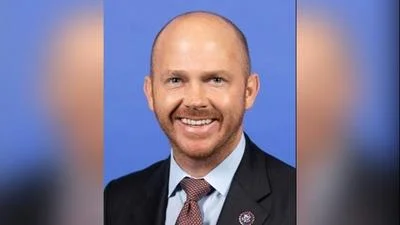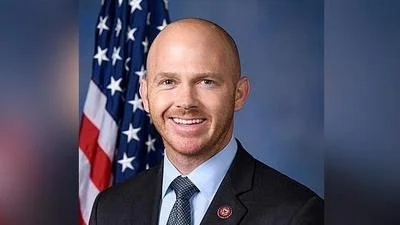J. Dan Walters, the CEO of Credit Central LLC | South Carolina Board of Financial Institutions
J. Dan Walters, the CEO of Credit Central LLC | South Carolina Board of Financial Institutions
Dan Walters, the CEO of Credit Central LLC in Greenville, is an emphatic critic of Senate Bill 910, which he says will greatly diminish his lending business in favor of credit unions and banks.
Walters argues the bill, aimed at restricting installment lenders' marketing efforts, would unlawfully eliminate their ability to reach customers.
“The bill would eliminate our ability to market to those census tracts or communities, but carves the credit unions and banks out from doing such,” Walters told the Greenville Leader. “It clearly gives them a distinct advantage, to service our customers or potential customers with what we believe are dangerous products in the form of revolving credit. That secures customers checking and savings accounts."
He said the bill provides an advantage to credit unions and banks, allowing them to offer potentially risky revolving credit accounts.
“That's really the kind of the scary part and our concern, is that eliminating our presence, our ability to market and what ultimately adds up to 45% of the state of South Carolina, and allowing credit unions, to proliferate a revolving credit account that secures customers assets, and credit unions send out, convenience checks to these credit card holders,” Walters said.
Walters contends that the bill may be unconstitutional by carving out exceptions for credit unions and banks.
“There's already discussions about the constitutionality of the bill, both with the South Carolina Constitution, in terms of allowing one, one entity to do something that the other entities are not allowed to do. Sure. And, of course, First Amendment freedom of speech could certainly be a challenge,” he said.
Walters highlighted the impact on small-dollar credit access for South Carolina residents and suggests that the legislation's understanding of different credit models is flawed.
“So my business, obviously, would cut my potential borrower prospects in South Carolina by half. I would not have the ability to, to market new borrower prospects, in these census tracking areas that are designated as low income or high risk. And which in and of itself is flawed,” he said.
Legislators considering the bill are under an “insurmountable amount of pressure" to pass the bill, according to Walters.
“From the proponent, lobbyist as well as the media. They just need to understand what this bill really is about. And what it's really about is, is removing a safe installment credit product from a demographic that benefits from those products and allowing credit unions to supplant that product with a much more dangerous and unstructured revolving credit problem that puts consumers assets at risk,” he said.
In an op-ed published in the Post and Courier Walters argued that the bill is flawed and would actually expose vulnerable citizens to predatory practices and imposes unnecessary restrictions on installment lenders, limiting the availability of safe credit to low-income households.
Walters noted the bill's provisions, such as barring text message marketing and requiring additional analysis of borrowers' ability to repay, are deemed ill-informed, with Walters suggesting the bill “picks winners and losers in the market, while imposing real financial harm on tens of thousands of South Carolinians.”
State Sen. Tom Davis (R-Beaufort) is the sponsor of S-910, currently under consideration by the Senate Committee on Labor, Commerce, and Industry.
Industry representatives argue that the bill inaccurately portrays their practices as deceptive, and emphasize the value their products bring to customers.
Approximately 45 percent of South Carolina's homes fall under the "low income" category in S-910, raising concerns reminiscent of pre-Equal Credit Opportunity Act of 1974 risk demarcations. Under the bill, the lenders would be disallowed from sending marketing materials to residents living in those areas.
“That is a completely unintended consequence, antithetical to what I know what the goals are,” Danielle Arlowe, senior vice president at the American Financial Services Association said, according to the Post and Courier. “But that certainly is the definition of redlining.”
Self-Help Credit Union and the Center for Responsible Lending are behind the restriction to installment lenders' marketing efforts as defined in S-910. Those groups have reportedly received over $380 million in federal grants and loans since 1996 while lobbying for increased regulations on lenders.
S-910 is currently under consideration by the Senate Committee on Labor, Commerce and Industry, with a hearing scheduled for Feb. 7.
Walters has given testimony at two previous hearings on S-910.




 Alerts Sign-up
Alerts Sign-up